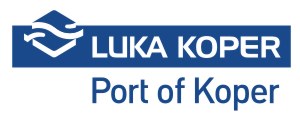Dariusz Mierkiewicz (Business Development Manager for Poland, Port of Koper (Luka Koper)): Optymalizacja w łańcuchach dostaw na przykładzie wybranych grup ładunków spożywczych w exporcie i w imporcie z Bliskiego Wschodu i Afryki.
W ramach tegorocznej edycji SWL jeden z warsztatów poprowadzi Pan Dariusz Mierkiewicz, Business Development Manager for Poland, Port of Koper (Luka Koper) pt. „Optymalizacja w łańcuchach dostaw na przykładzie wybranych grup ładunków spożywczych w exporcie i w imporcie z Bliskiego Wschodu i Afryki.”

The Port of Koper is a Slovenian multi-purpose port, equipped and prepared for handling and warehousing all types of goods. The basic port activity is carried out at specialised terminals, which are technically and organisationally suitable for handling and warehousing of specific cargo groups. Range of the Luka Koper activity covers: container handling, port terminal services, warehousing, stuffing/stripping of containers, handling project cargo, handling and storage of perishable cargo, car terminal, loading and unloading trucks and block trains.
Port of Koper is an excellent option for Polish market in regards of transit time and flexibility. The cooperation in regards of exports/imports of the general cargo and new vehicles from Polish market via Port of Koper has already a few decades of history. Recent “discovery” of Koper for containers shipments is associated to the growing number of regular train connections between South of Poland and Koper, convenient sea transit times to (from) the Mediterranean, Gulf and Asian destinations and the neutrality & efficiency of services provided at Koper. This equilibrium of services was initially appreciated especially among importers of car, electronics and other parts for industrial production in Poland, while the consumer goods in export and later also in import started to follow with some delay. Since the polish apples had to find some new overseas markets a few years ago, the Reefer Terminal in Koper was fast to gain interests of polish growers – followed by the interest of exotic fruit and early vegetable importers – who more than ever started to source directly from the global suppliers.
slot pulsa tanpa potongan

